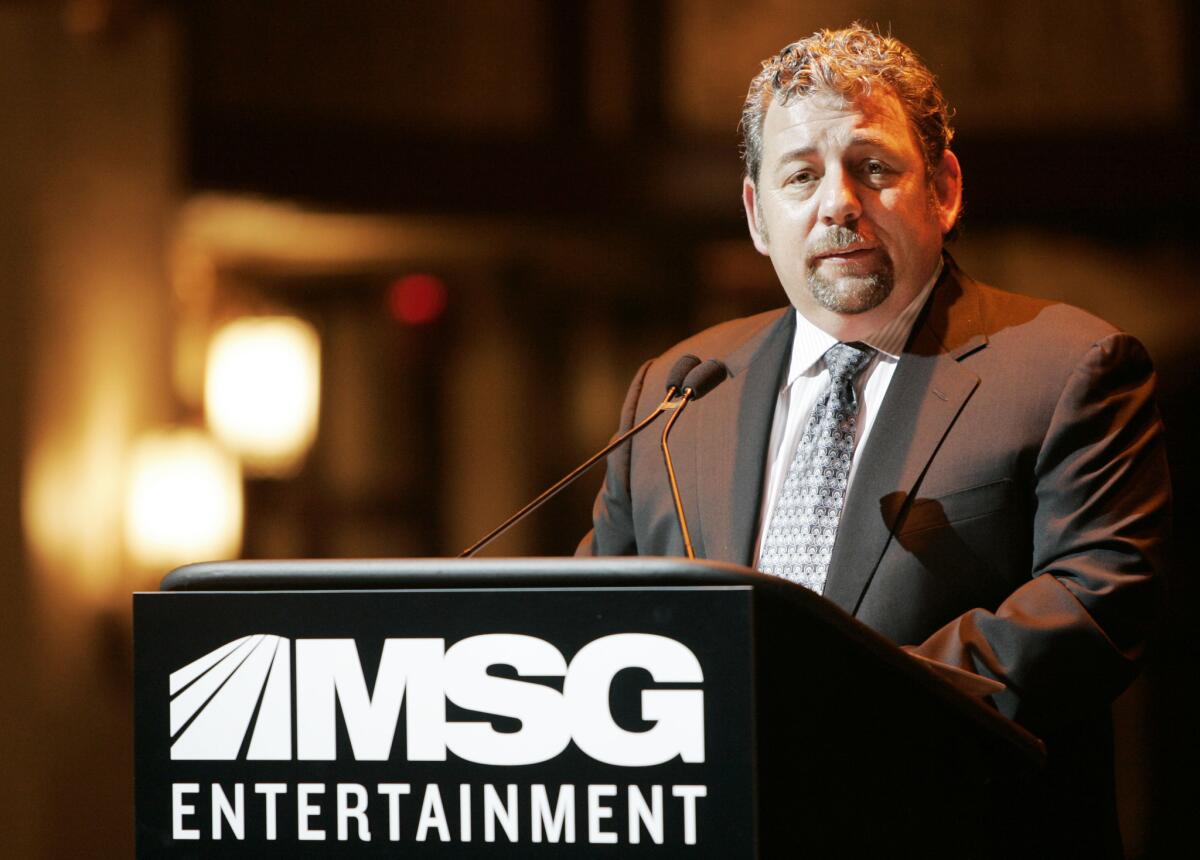A cable TV operator goes to bat against costly channel bundles

Consumers don’t ordinarily think of cable TV companies as friends of the little guy. But Cablevision, which won an extremely pro-consumer court ruling on digital video recording in 2008, is waging another legal battle that could be a boon to pay-TV customers in general.
The Long Island-based cable operator is suing Viacom -- the entertainment conglomerate that owns MTV, Comedy Central, BET and a slew of other cable networks -- for allegedly violating antitrust law by requiring Cablevision to carry 14 low-value networks in order to obtain access to eight popular ones. Filed Tuesday in federal court in Manhattan, the lawsuit seeks to invalidate a deal that Cablevision struck with Viacom in December, as well as barring the latter from requiring Cablevision to carry any of its less popular “ancillary” networks as a condition for carrying one or more of the “core” networks.
The case taps into a long-running dispute about channel bundling between pay-TV operators and the small number of giant entertainment companies that supply most of their programming. And it’s more than just inside baseball. Bundling by programmers is one of the reasons cable rates are so high.
Cable operators typically pay programmers a fee for each network based on the number of subscribers who have access to it each month (i.e., the number of people who subscribe to the relevant programming tier), regardless of how many people actually tune in. That’s why programmers push pay-TV operators to include their channels in the most popular tiers. The more networks that get stuffed into those tiers, the more expensive they become for consumers. Conversely, breaking up the programming bundles would let pay-TV operators offer smaller and cheaper basic tiers or replace “ancillary” networks such as Viacom’s Palladia and Teen Nick with more popular fare.
Some pay-TV operators have also claimed that programmers won’t let them move some costly channels out of the most popular tiers. As a result, they say, they can’t take some obvious steps to make their service more affordable, such as splitting sports networks into their own tier. With programs freed from bundles, operators would have much more flexibility to customize packages or let viewers create their own channel lineups.
Such arguments should be taken with a heavy dose of salt. When policymakers have pushed to let consumers order individual channels a la carte, pay-TV operators have been in the vanguard of the opposition, claiming the change would hurt consumers by raising prices and reducing the diversity of content. Some of the biggest cable operators also are major TV programmers.
Beyond that, the odds of Cablevision’s lawsuit against Viacom actually going to trial seem slim. Disputes between pay-TV operators and programmers almost always end in settlements. Nor is it easy to prove an antitrust claim based on bundling. As my colleague Joe Flint has reported, a federal district court and an appeals panel in California rejected a complaint by cable and satellite TV subscribers along those lines, and the Supreme Court declined last year to review those rulings.
Cablevision is better positioned to challenge the practice, given its inside knowledge of the terms sought and the leverage wielded by programmers. Yet it must still prove that Viacom’s approach goes beyond simply offering a sort of volume discount to pay-TV companies that take its entire lineup of networks.
That’s how Viacom defended itself in a statement on the company blog Tuesday. “At the request of distributors” -- that’s industry-speak for pay-TV companies such as Cablevision -- “Viacom and other programmers have long offered discounts to those who agree to provide additional network distribution,” the company said. “Reflecting the highly competitive cable programming business, these arrangements have been upheld by a number of federal courts and on appeal.”
Even if Cablevision wins, the ruling may have no weight outside its home turf. On the other hand, it could inspire other pay-TV operators to fight the programming bundles. That’s what happened in the tech industry when Cablevision successfully fought for the right to sell DVR functions as a network-based service, instead of simply renting its customers DVR-equipped set-top boxes. Once the door is opened to more flexible channel lineups, it’s hard to predict what will come in.
ALSO:
ISPs become copyright enforcers
How the GOP may outmaneuver Democrats on the sequester
Oscars 2013: How Seth MacFarlane’s sexist jokes hurt women
Follow Jon Healey on Twitter @jcahealey
More to Read
A cure for the common opinion
Get thought-provoking perspectives with our weekly newsletter.
You may occasionally receive promotional content from the Los Angeles Times.






